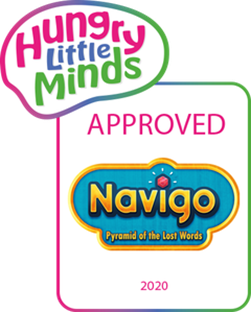iREAD: Navigo
1. What is Navigo?
I Read is a large scale 4-year (2017-2020) research project funded by EU H2020. The project involves interaction and game designers, educational researchers and industry partners from across industry and education in 8 European countries working together to develop tailored technology that supports primary school children in becoming confident and skilled readers including children with dyslexia. The Navigo literacy game is one of two tools that has been collaboratively designed within the project through user centred design activities with teachers and students with the goal of supporting students to reinforce their literacy skills. For students with dyslexia and English as a foreign language, text-to-speech capabilities provide students with the much-needed exposure to age-appropriate vocabulary and pronunciation.

2. How can Navigo make learning more personalized?
There are 16 game mechanics and more than 900 games available, which means the child can practice a language feature through different game activities; promoting transferability and consolidation of learning. In addition to the breadth of material, the game design is based on research that shows there is a gradual learning journey that starts from children (i) recognising and applying the correct linguistic rule, (ii) moving to using and combining different linguistic rules to bring together smaller units of words such as graphemes or morphemes to build a correct word (blending and segmenting) or rearrange/build meaningful sentences and (iii) ending with automatising this knowledge. This progressive view of learning to read accurately and fluently is reflected in the design of the game mechanics and how they are sequenced.Navigo draws from a dictionary containing 9,000 words that are used in the games. This dictionary was created from existing children’s literature and has been curated by reading experts to be age appropriate.
The majority of Navigo games offer elaborative feedback. The feedback is presented ‘in the moment’ and designed to support the child’s understanding of their error, to scaffold further attempts in the game and encourage metacognition.
3. What to consider when implementing Navigo?
The iRead apps are already being used by over 4 000 primary school students. The Navigo game received a Serious Games Society Award in 2018 and 2019, and the UK Department of Education awarded Navigo a quality mark for its pedagogical design.A large number of iRead evaluation pilots is currently underway across six European countries and there have already been published substantial amounts of scientific papers and interim reports in relation to principles of design, implementation and evaluation. However there it is still to early to draw conclusion of how usage of the apps have affected the reading skills of the participating schools/ students.There is a teacher manual to support the school use of the Navigo Game and the teacher tools that help assign games/texts https://iread-project.eu/resources-2/teacher-manuals/
4. Where can I get started with Navigo?
The IRead project is managed by UCL Knowledge Lab. For queries, you can contact the team via [iread@ucl.ac.uk]. More information about Navigo can be found on the IRead homepage https://iread-project.eu/game/ and YouTube https://youtu.be/j_cMgXgzcZ0
